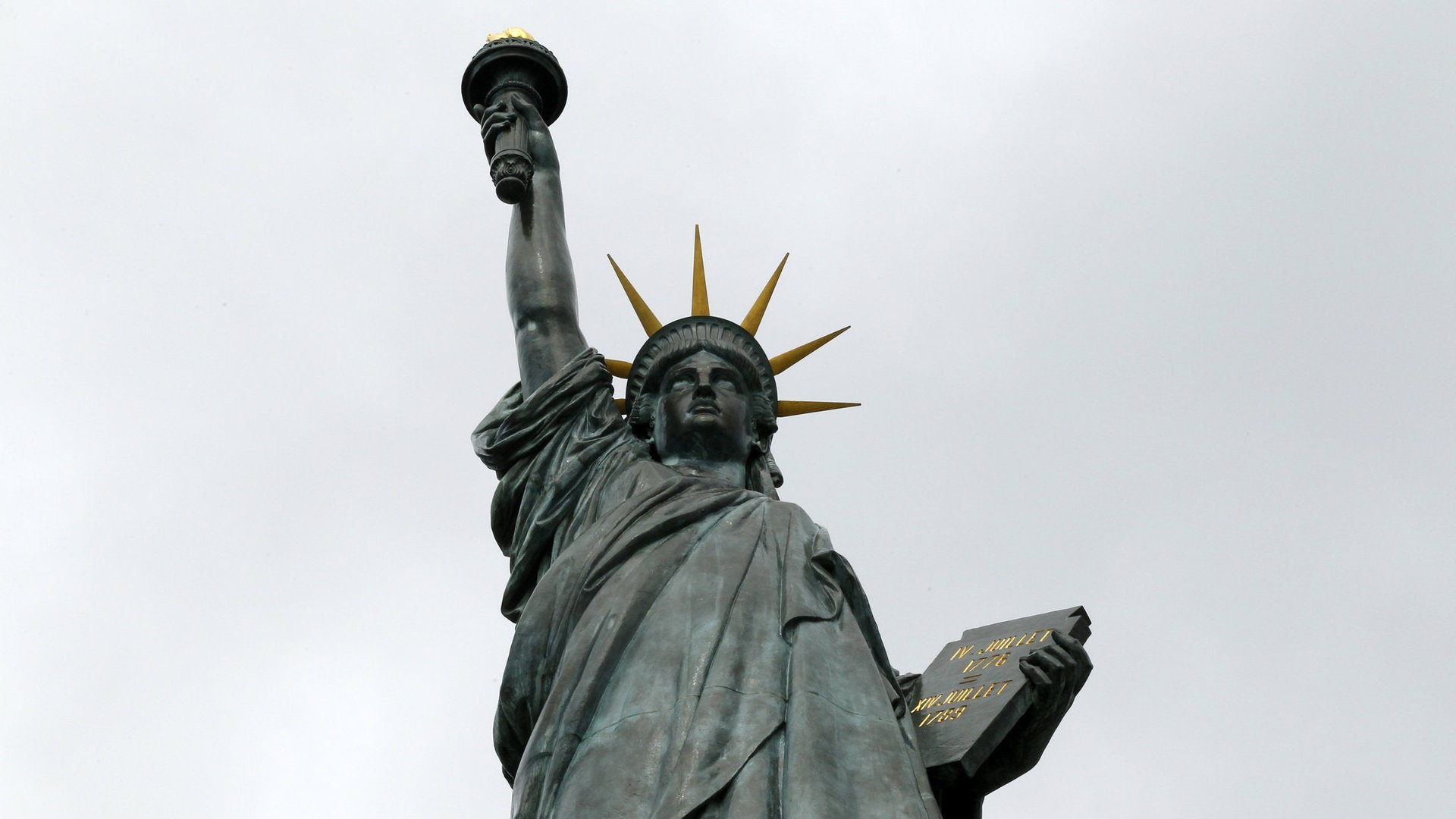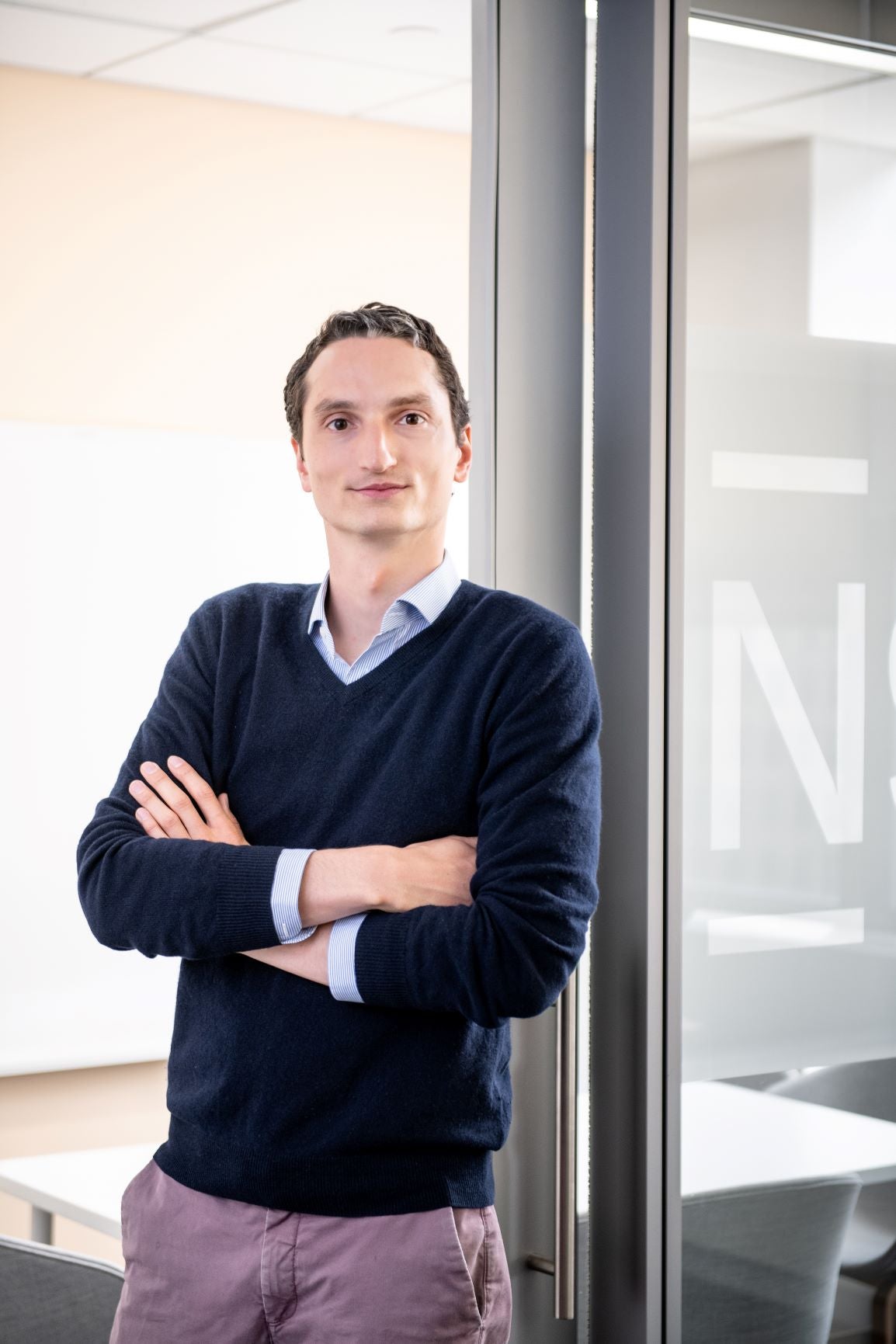As Deutsche Bank retreats from the US, a German fintech is launching there
This week Deutsche Bank, Germany’s biggest bank, announced a major retreat from the US. Coincidently, a Berlin-based digital financial startup named N26 is launching there today, aiming to go head-to-head with America’s banking titans.


This week Deutsche Bank, Germany’s biggest bank, announced a major retreat from the US. Coincidently, a Berlin-based digital financial startup named N26 is launching there today, aiming to go head-to-head with America’s banking titans.
N26, which runs a consumer banking app and payment card, says it has 3.5 million customers spread across Europe, from France and Germany to the UK. It has partnered with San Diego-based Axos Bank, which is an FDIC member and is run by Greg Garrabrants, a former investment banker at Goldman Sachs. N26 received a banking license in Europe in 2016, and it will operate in the US through a New York subsidiary.
A key question for N26 and other European banking startups is whether they are spreading themselves too thin, too soon, by trying to make inroads in the world’s biggest economy.
Europe, and London in particular, has a thriving, competitive fintech sector. The American market, by contrast, is dominated by world-leading universal banks (something Deutsche Bank used to be) like JPMorgan, Citigroup, and Bank of America. PayPal’s Venmo and Square’s Cash App are each getting installed on millions of phones in the US each month. Startup bank Chime reportedly has more than 4 million customers and is splashing cash on referrals—giving existing customers and new users $50 each when they sign up. Attracting customers in the US can be an expensive game.
N26 co-founder Valentin Stalf said the company balances complexity, demand, and size when deciding on new markets. “Quickly you realize there aren’t many markets as attractive as the US,” he said in a phone interview, along with US CEO Nicolas Kopp. The executives point out that the US has a big, mobile-savvy population and bank fees are still relatively high. They say their waiting list of 100,000 customers demonstrates the demand for N26 in America.

Stalf is very ambitious, even by tech startup standards: The company plans to launch in Brazil in 2020, as part of a strategy to become a global banking brand. N26 argues that while the US has sophisticated fintech startups like the brokerage app Robinhood, the neobank sector is more nascent. The six-year-old firm’s executives say they will provide more features than incumbent financial apps, and that their word-of-mouth marketing is an efficient way to rack up new customers.
They also say they have the money needed to compete: The upstart has raised more than $500 million of from investors including Lakestar and Tencent, which runs China’s mega-app WeChat (Quartz member exclusive).
The fintech firm has gotten dinged by regulators along the way. In May, Germany’s Federal Financial Supervisory Authority (BaFin) published an order for N26, which requires the neobank to stiffen its processes for money laundering prevention. N26 said at the time that “we take this order very seriously and have agreed on the implementation of the necessary measures with BaFin in advance.”
N26 was valued at $2.7 billion earlier this year, a fraction of the heft of banks like JPMorgan with a market capitalization of more than $360 billion and a technology spend of some $11 billion a year. Is an online-only consumer bank that spans complex national financial regulations, local customs and quirks, and entrenched domestic competitors viable? N26 isn’t the only one targeting such a thing.
Stalf pointed out that the company has investment backing of visionaries like PayPal-cofounder Peter Thiel’s Valar Ventures, as well as companies like Visa, which has expertise in the US market and has also built a global financial brand. Taking a company from Europe to the US “isn’t a chance you have every day,” he said.
Deutsche Bank made a similar bet when it acquired Bankers Trust for $10 billion in 1998. Twenty years later, it is untangling that bold expansion. It probably won’t take as long to find out whether a new generation of European finance execs have better luck cracking the American market.